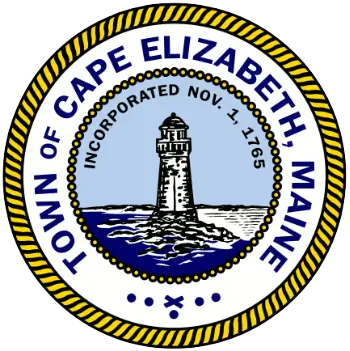Published on August 10, 2022

On Monday, August 8, 2022 the council voted 5-2 in favor of appropriating $50,000 to Safe in Maine Fund from excess Fiscal Year 2022 revenues in account R0898 – State Revenue Sharing. Councilors Timothy Reiniger and Susan Gillis voted against the motion.
Safe in Maine Fund was launched on June 30 with the goal of providing funding for transitional housing for asylum seekers in Maine. The Center for Regional Prosperity, a non-profit corporation affiliated with the Greater Portland Council of Governments (GPCOG), is the administer of Safe in Maine Fund. GPCOG is a regional planning organization, a metropolitan planning organization, and an economic-development district that works to strengthen local governments, unite municipalities in addressing local and regional concerns, and promote prosperous, equitable, and sustainable communities. Cape Elizabeth is a member of GPCOG.
At an earlier council meeting on July 11, Belinda Ray, GPCOG Director of Strategic Partnerships, provided the council with an overview of the Safe in Maine Fund and a request for a donation consideration. According to Ray, the fund has been established in response to the large number of asylum seekers in the greater Portland region and “With the knowledge that the, geography of the world’s population is in flux, with over 100 million people forcefully displaced as of June 16, 2022.” Currently, hotels are being used to host asylum seekers. This is considered an insecure, expensive, and unsustainable solution. Ray explained that the Safe in Maine Fund views establishing transitional housing as the best solution which would not only benefit this population, but municipalities, businesses, and the state as well. “Intentionally developed, permanent transitional housing will provide new arrivals to Maine with a safe and stable landing place and make more efficient and effective use of limited tax payer dollars. Initially, this housing is expected to be used by current asylum seekers at hotels, but over time this housing can be used for other uses; domestic families who are in transition, seasonal workers, and new workers who are relocating to Maine for new jobs, and a much-needed relief valve for housing,” Ray said.
The model for the project is based on an effort in Arizona which has created a newcomer community center which is surrounded by 150 homes. The center assists asylum seekers with various services that help them assimilate with the community. Ray said that the plan is to have a similar center and housing on one or two campuses and have operations run by an outside group. The goal is to raise $1.5 million within six months and have housing built within two years. According to Ray, $1.5 million would represent 10 percent of the total cost. There are approximately 1,400 asylum seekers across many communities in Maine in hotel rooms, costing about $7,000 thousand per month. Rays said that creating transitional housing would, “Bring the cost down to under $1,000 per month, per family.”
At the July 11 meeting, Councilor Penny Jordan said that she was in support of the project, but wanted to balance aid with other people in need, “I do believe that Cape needs to step forward and do something around the housing crisis in the area. I propose that we contribute to the project with GPCOG and at the same time look at other housing projects and allocate sources in other directions too.” Ray acknowledged that this plan addresses, “One piece of the housing-crisis puzzle.” Other parts of GPCOG focus on affordable housing, as well as advocating for a variety of more houses to be built. Ray also said that GPCOG is a member organization and would be open to requests for other initiatives such as a, “Group effort on housing in general.”
During the recent August 8 council meeting, Reiniger acknowledged that the housing issue for asylum seekers is a, “Compelling and well-known issue, but I am opposed because there are many great important causes; how do we say ‘yes’ to this and say ‘no’ to the next one? I think it is a very bad precedent to be starting to allocate funds to various causes.”
Chair Jeremy Gabrielson pointed out that there is an annual precedence for the town appropriating funds, “To folks who are doing work largely around housing and social services in the area. We have, on a handful of occasions, considered supplemental appropriations; most recently we made a supplemental appropriation to Opportunity Alliance.” Considering the Safe in Maine Fund specifically, Gabrielson noted, “In particular [this is] a regional priority that has been prioritized by the Greater Council of Governments, of which we are a part, and it speaks to the need for increased housing diversity within the region. In this case I do suspect that the transitional housing will fall outside of Cape Elizabeth, but we do live in a regional housing market and this is really going to help address what is right now one of the most critical housing needs.”
Reiniger added he had concerns that taking on regional priorities would lock the town to a greater regional approach of transferring money, “People are free to give their money to great causes, but to take it out of the town budget is a mistake.” Councilor Nicole Boucher responded by saying that these regional crises are already impacting our budget; it’s $7,000 a month to house a displaced family. I think a donation to work on the root causes is one that will eventually save in the long run for the entire region.” Connecting to the council’s goals, Boucher added, “We benefit from being in this region and I don’t think that saying ‘no’ is the right answer. One of our strategic goals that we voted on in March is to insure diverse housing opportunities and this falls under that. Saying ‘yes’ to this doesn’t mean we have to say yes to the next thing.”
Town Manager Matthew Sturgis confirmed that the town has a history of allocating aid, “Over the past four years the town has appropriated to Preble Street $20,000 and to Opportunity Alliance $25,300 over that time period. In addition, through the budget process, account 410 is our human services budget and through that you [the council] allocate different funds to different organizations across the region like: VNA Home Health & Hospice, Southern Maine Agency on Aging, and the Independent Transportation Network.” According to Sturgis, the current budget appropriates roughly $93,100 to different social service organizations; this includes the general assistance budget which assists local families in need. “There is an established area there and the town in the past has flexed up and down as the needs have arisen,” Sturgis added.
Jordan said that she was in agreement with Boucher’s belief that Safe in Maine addresses “root causes” and added that Cape Elizabeth has, “Allowed Portland to carry the weight on many issues around homelessness; South Portland and Freeport have stepped up and offered rooms and hotels.” Addressing the lack of affordable housing in general, Jordan said, “Homelessness is not just about asylum seekers; it’s about many families who are now on the streets who can’t afford rents. I can support this if I know there are other programs addressing those issues.” As Safe in Maine aims to create more housing, “I think that this is the tip of the iceberg; it’s just one step that Cape Elizabeth can take to demonstrate that we truly want to start solving the housing issue in the region. Is $50,000 the right amount? I think it’s a good start,” Jordan said.
Councilor Susan Gillis said that she did not approve of the donation amount, “I think $50,000 is a lot of money for this one particular group; there is no end in sight. I think we are going to have people coming to us through the winter asking for money too for heating costs and all sorts of things. I understand the problem; I see the problem; but there just doesn’t seem to be anything in place to stem the flow either.”
